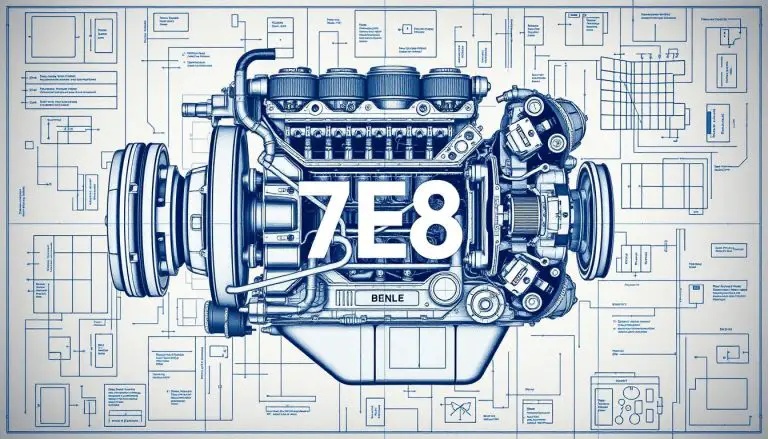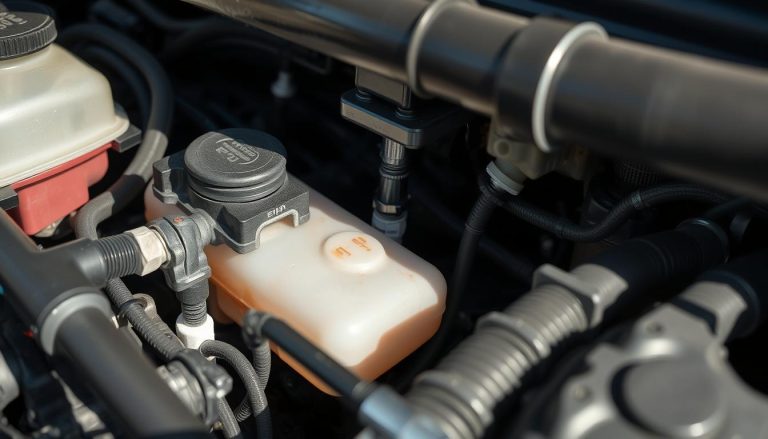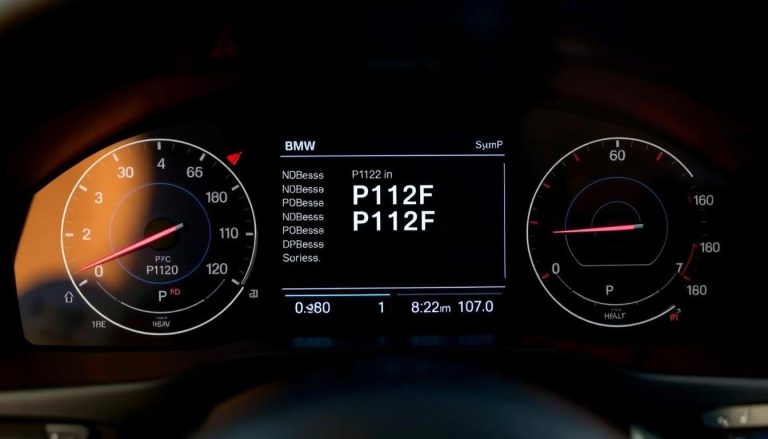When your check engine light flickers on, among the myriad of codes that can pop up, one particularly perplexing code is P0194. This code points to an issue with the fuel rail pressure sensor circuit, and while it might sound technical, understanding its implications is crucial for any vehicle owner.
Whether you’re a seasoned mechanic or just someone trying to keep their car running smoothly, knowing what P0194 means can save you time and money in repairs down the line. Let’s dive deep into this diagnostic trouble code—exploring its causes, symptoms, diagnostics steps, and how to fix it effectively!
What does the P0194 code mean?
The P0194 code is a diagnostic trouble code (DTC) that indicates an intermittent issue with the Fuel Rail Pressure Sensor A circuit. This sensor plays a vital role in monitoring the fuel pressure within the rail, ensuring optimal engine performance.
When this code appears, it signals that there may be fluctuations or inconsistencies in the signal sent from the sensor to the engine control unit (ECU). These irregularities can result from various factors like poor electrical connections, damaged wiring, or even issues within the sensor itself.
Understanding this code is essential for diagnosing potential problems affecting your vehicle’s fuel delivery system. Ignoring it could lead to decreased engine efficiency and increased emissions, impacting overall performance and drivability.
What parts can be affected by P0194 code ?
The P0194 code primarily points to issues with the fuel rail pressure sensor. This sensor plays a vital role in monitoring the fuel pressure within the rail, ensuring optimal engine performance.
When this code is triggered, it can indicate problems with the wiring harness or connectors associated with the sensor. Damaged wires or loose connections might disrupt communication between components.
Additionally, the fuel pump could also be affected. If it’s not delivering adequate pressure due to an underlying issue related to this code, you may experience decreased engine efficiency.
Another potential area of concern includes the Engine Control Module (ECM). Malfunctions in this unit could misinterpret readings from various sensors, leading to erroneous codes like P0194 appearing on your dashboard.
A clogged fuel filter may contribute indirectly by affecting overall fuel flow and causing fluctuations that trigger warning codes. Each part interacts closely with others in your vehicle’s system.
What are the possible causes of a P0194 code?
The P0194 code can stem from several issues within the fuel system. One common cause is a malfunctioning fuel rail pressure sensor itself. If the sensor fails, it may send incorrect readings to the engine control unit (ECU), triggering this code.
Corroded or damaged wiring and connectors in the circuit can also lead to intermittent signals. Poor connections may disrupt communication between components, resulting in inaccurate data transmission.
Another potential culprit is a clogged fuel filter. When fuel cannot flow freely, pressure fluctuations occur, causing erratic readings that could be interpreted as an issue with the sensor.
Additionally, problems with the fuel pump or even low-quality fuels might contribute to inconsistent performance. These factors complicate matters further by affecting overall engine efficiency and response times.
What are the common symptoms of a P0194 code?
When a vehicle registers the P0194 code, several symptoms may emerge. You might notice a decrease in engine performance. This can manifest as sluggish acceleration or an overall lack of power.
Another common symptom is poor fuel efficiency. If your gas mileage takes a hit, it could be linked to issues with the fuel rail pressure sensor.
Drivers frequently report rough idling or stalling when this code is present. The engine may struggle to maintain consistent RPMs, leading to a shaky ride.
Additionally, you might see warning lights on your dashboard illuminating. These alerts often indicate that something isn’t quite right under the hood and should not be ignored.
Some vehicles can experience hard starting due to irregular fuel pressure readings caused by the faulty sensor. All these signs serve as important cues for potential underlying issues with your vehicle’s fuel system.
What are the diagnostic steps for a P0194 code?
Diagnosing a P0194 code involves several systematic steps. First, connect an OBD-II scanner to retrieve the trouble codes stored in the vehicle’s computer. This initial scan will help confirm that P0194 is indeed present.
Next, visually inspect wiring and connectors linked to the fuel rail pressure sensor. Look for any signs of damage or corrosion that could affect performance.
After confirming physical integrity, it’s essential to test the voltage and ground at the sensor with a multimeter. This step helps determine if there is sufficient power supply reaching the component.
Follow up by checking fuel pressure readings using specialized tools to ensure they align with manufacturer specifications. If discrepancies arise, further investigation into related systems may be necessary.
Clear any fault codes after diagnostics are complete and run a road test to see if the code reappears under driving conditions.
How serious Is the P0194 Code? Can I continue driving with the P0194 code?
The P0194 code indicates an intermittent issue with the fuel rail pressure sensor circuit. This can affect your vehicle’s performance and efficiency.
Driving with this code present can lead to unreliable engine behavior. You might experience rough idling, stalling, or poor acceleration. These symptoms could pose a risk while driving.
While some drivers may continue operating their vehicles for short distances, it’s generally not advisable. Ignoring it could exacerbate underlying problems that might require costly repairs later on.
Monitoring how your car responds is essential if you decide to drive with this code active. If warning lights appear or performance worsens, seeking professional help becomes crucial for safety and reliability.
What are the repair solutions for a P0194 – Fuel Rail Pressure Sensor A Circuit Intermittent ?
Repairing the P0194 code typically begins with a thorough inspection of the fuel rail pressure sensor and its wiring. A damaged or corroded connection can lead to erratic readings, so it’s essential to check for any signs of wear.
If the sensor itself is faulty, replacing it often resolves the issue. After installation, ensure that all connections are tight and secure.
Next, resetting the engine control module (ECM) may be necessary to clear any stored codes. This allows you to monitor if the repair was successful without interference from old data.
In some cases, further diagnostics might reveal issues in related components like fuel pumps or injectors. Addressing these problems can restore proper function and prevent future occurrences of the P0194 code.
Always consider professional assistance when dealing with complex electrical systems for optimal results.
How long and How much does it cost to diagnose and repair a P0194 code?
Diagnosing a P0194 code typically takes between one to two hours. Mechanics will connect the vehicle’s onboard diagnostics system and check for any related issues.
The labor cost can vary by region, but you might expect to pay anywhere from $80 to $150 per hour for this service. If they discover underlying problems with wiring or connectors, additional time may be required.
Repair costs largely depend on what needs fixing. Replacing the fuel rail pressure sensor usually ranges from $100 to $300, including parts and labor. However, if there are more extensive wiring repairs needed, costs could rise significantly.
Always ask for a detailed estimate before agreeing to any repairs. This transparency helps ensure you’re not caught off-guard by unexpected expenses as you address the P0194 code issue in your vehicle.
How can I avoid a P0194 code?
To avoid encountering a P0194 code, regular vehicle maintenance is crucial. Keep up with your oil changes and fuel filter replacements as recommended by the manufacturer. Clean fuel injectors help maintain optimal performance.
Monitor your fuel quality as well. Using high-quality gasoline can prevent contaminants from affecting sensor readings and overall engine function.
Inspect electrical connections frequently, especially around the fuel rail pressure sensor. Look for signs of wear or corrosion that could disrupt the circuit.
Addressing any warning lights promptly can save you from more serious issues down the road. Don’t ignore minor symptoms; they often signal something larger brewing beneath the surface. Keeping an eye on these details ensures smoother drives ahead while reducing potential repairs related to a P0194 code.
What happens if you ignore a P0194 code?
Ignoring a P0194 code can lead to significant engine performance issues. The fuel rail pressure sensor plays a crucial role in regulating the fuel supply. If this system fails, your engine might experience power loss or misfires.
Over time, neglecting this code may result in more severe damage. Components like the fuel injectors and even the fuel pump could become stressed due to improper pressure levels. This could escalate repair costs significantly.
Additionally, continuing to drive with an active P0194 code risks stalling or starting problems. You might find yourself stranded unexpectedly, facing costly towing fees and repairs.
It’s also worth noting that persistent codes can trigger your vehicle’s check engine light to remain illuminated, leading you to overlook other potential issues that require attention. Prioritizing diagnostics is always wise for long-term health and reliability of your vehicle.
Is the P0194 code specific to certain car makes or models?
The P0194 code is not limited to a specific make or model. It can appear in a variety of vehicles, including sedans, SUVs, and trucks from different manufacturers.
However, certain brands may have more frequent occurrences due to their engine designs or fuel systems. For instance, some common models from Ford and Chevrolet are known for reporting this code more often than others.
While there isn’t a direct link between the P0194 code and particular car types, understanding this pattern can help owners identify potential issues early on. Regular maintenance plays a critical role in preventing these codes from appearing across all makes.
Always consult your vehicle’s service manual for guidance tailored to your specific model when dealing with diagnostic trouble codes like P0194.
What other codes may be related to P0194?
When dealing with the P0194 code, it’s important to be aware of other codes that might pop up alongside it. These additional codes can provide valuable insights into underlying issues within your vehicle’s fuel system.
Codes such as P0191 (Fuel Rail Pressure Sensor A Range/Performance Problem) and P0193 (Fuel Rail Pressure Sensor A Circuit High Input) often appear in conjunction with P0194. Both suggest potential problems related to fuel pressure sensors or the wiring involved.
Other related diagnostic trouble codes include P0300 (Random/Multiple Cylinder Misfire Detected), which may indicate performance issues stemming from an improper air-fuel mixture due to incorrect readings from faulty sensors like those affected by a P0194 code.
Understanding these interconnected codes can help you diagnose your vehicle more effectively and ultimately save time and money on repairs. Keeping an eye out for them when addressing the P0194 issue is essential for maintaining optimal engine performance.


